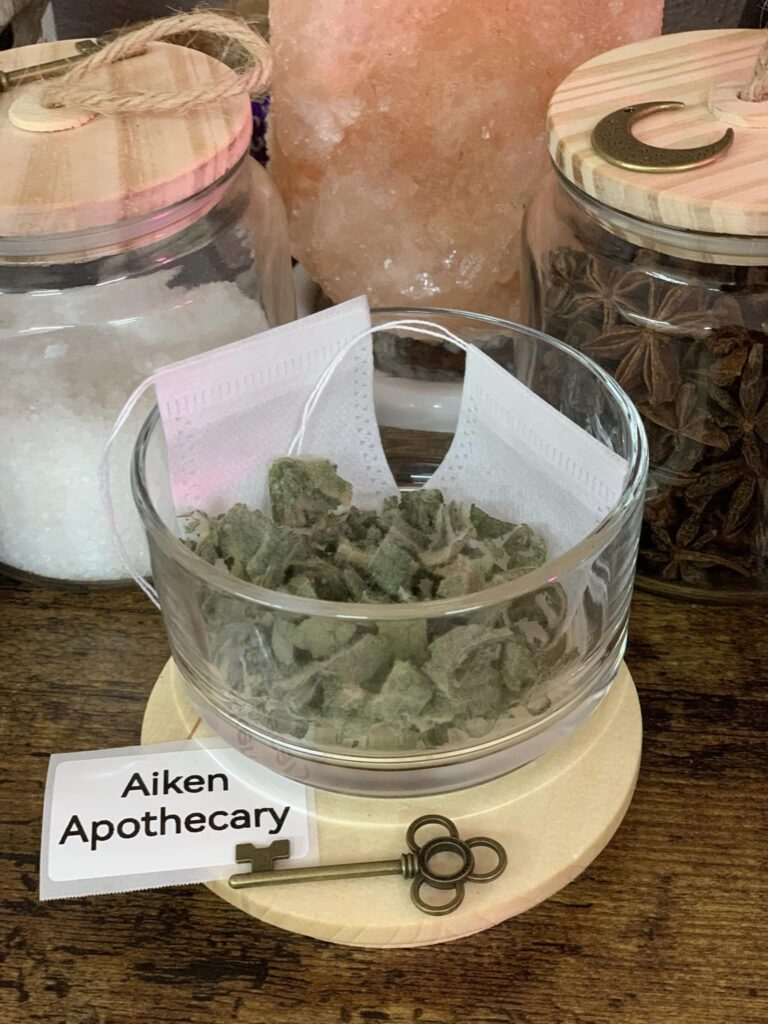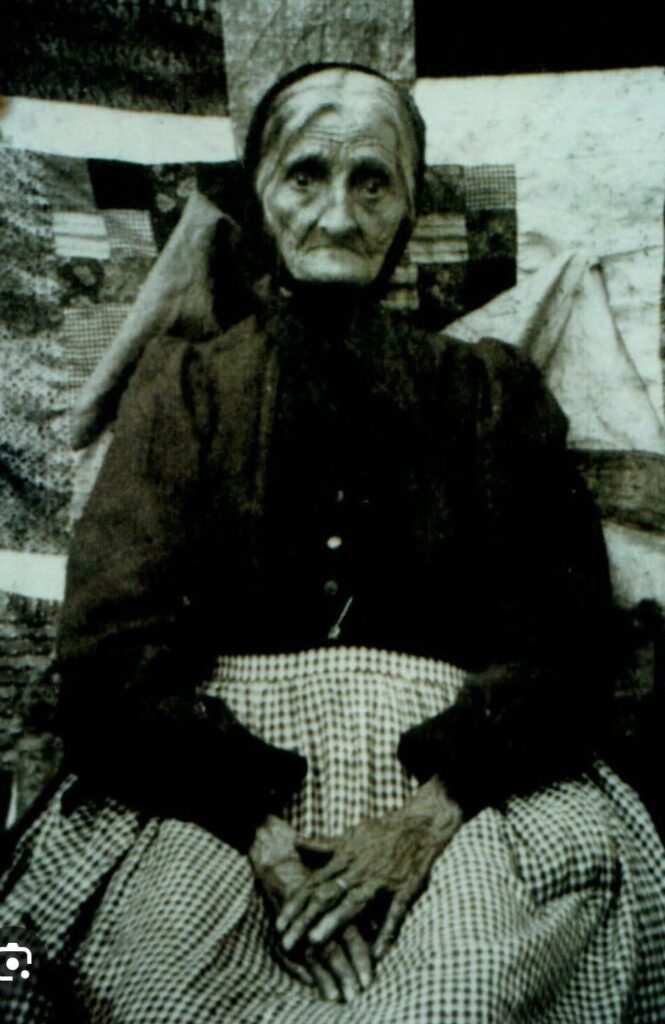
How did Aiken Apothecary get it’s name? My Great, Great, Great Grandmother was Rebecca Aiken. I grew up hearing stories about her. My family grew up close to Judaculla Rock. Lots of interesting history and heritage!!! See the article below about the Witch of Caney Fork.
An Apothecary sells the ingredients for and prepares herbal remedies.
Thanks for stopping by to learn about my craft.
~Natisha Andrews







The Witch of Caney Fork set tongues to waggin’

Published in the Sylva Herald Oct 25, 2023 Here’s the link to the original article https://www.thesylvaherald.com/news/article_5347da0e-735a-11ee-8f99-87926c5b6a2d.html
By Beth Lawrence
Does Jackson County have witches?
An internet search claims there was at least one. A handful of accounts tell of Beck Aiken The Witch of Caney Fork. Who was she, and why was she labeled a witch?
The details of her personal history are as evanescent as the creature she’s accused of being. Her family is believed to be from South Carolina, but Rebecca Hoxit? Maybe Hogshead? Was born in North Carolina. Maybe Transylvania County? Maybe part Cherokee?
Did her lack of a backstory and her racial ancestry lend itself to the mystical air around her?
The first proof of her existence is a census from 1850 in Henderson County, according to the N.C. History Center on the Civil War, Emancipation, and Reconstruction in Fayetteville.
She shows up as Rebecca Galloway living with Thomas Aiken and a 2-year-old son.
Beck may have been married several times or she may have been living in sin, as it would have been called back then, having several husbands or partners.
She was first married to a Galloway in 1846, according to a genealogical account written by Dan Johnson.
The 1860 Census lists her as head of household with several children living in Henderson. By 1870, she moved to Caney Fork.
This is where the rumors began.
By the late 1880s Beck’s children had grown up and moved away and some had passed away.
When she is approaching her 60s, she finds love or companionship again with 77-year-old John Hannah or Hameat.
The two apparently do not make the marriage official and are charged with fornication and adultery by the state in fall 1888.
“It doesn’t seem to have been as scandalous as it sounds, as the only action taken was that having failed to appear in court, they were obliged to pay court costs,” Johnson writes.
Is this episode the impetus for the rumors?
Or was it, as often seems to be the case, that she was just a loner and outsider who perhaps had a temper or awkward personality preventing her from fitting into societal norms?
There are accounts of her begging for food or chickens from neighbors. Some were afraid to refuse, but at least one did. In retaliation Rebecca allegedly cast a curse and caused their cow’s milk to be unusable for churning to butter.
Some claimed she was a shapeshifter who could transform herself into animals. One account has her turning into a calf darting back and forth from the footpath to the pasture chanting a charm as she went. Another claims she made herself into a cat and sat around listening to women gossip about her.
One story says some adventurous children tried to trick Rebecca out of her powers by getting her to step over a broom rendering her powers null. No matter where or how they hid the broom, she allegedly knew and found another way to enter the home.
Perhaps most disturbing for Jacksonians at that time was a rumor that she lured a young man to Judaculla Rock and tried to get him to renounce his faith and embrace witchcraft.
Beck Aiken died in 1912. As is the southern custom of slighting people in life and venerating them in death, her obituary painted a rosy picture.
Johnson writes that The Jackson County Journal’s obituary called her a Christian whose funeral was well attended and who received many praises and outpourings of love.
Was Rebecca Aiken, like so many others who have been named witch, just a victim of spurious rumors by those who couldn’t or wouldn’t understand her? Or did she really have the powers attributed to her? The answer is lost to history.


